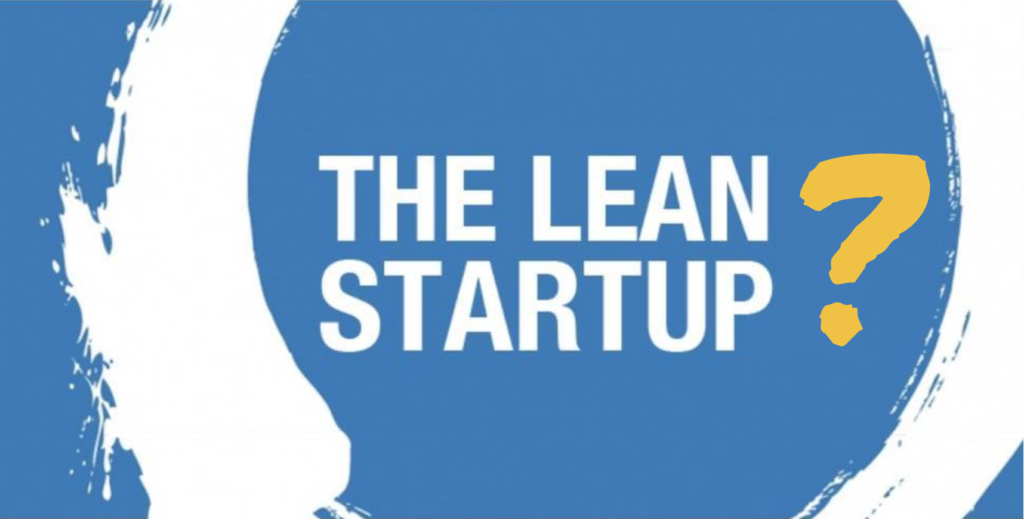
“Lean start-up has changed nothing.” – Steve Blank
Don’t take my word for it, take it from the one who founded the Lean Startup movement – Steve Blank. In a recent interview with Kurt Nickisch of the Harvard Business Idea Cast podcast #588: When Startups Scrapped the Business Plan, Blank discusses the growth and challenges in the Lean Startup Movement.
Who is Steve Blank?

© 2012 Eric Millette, All Rights Reserved www.EricMillette.com 415-750-9999 USA
Blank, a serial-entrepreneur and adjunct professor of entrepreneurship at Stanford, is recognized for developing the Customer Development method that launched the Lean Startup movement, popularized by Eric Ries in his book The Lean Startup: How Today’s Entrepreneurs Use Continuous Innovation to Create Radically Successful Businesses. After a decade of Lean Startup experiments in Silicon Valley, Blank authored a pivotal HBR Article in 2013 – Why the Lean Start-Up Changes Everything, placing it on the many CEOs “To Do” list. Today however, after years of witnessing these innovative Silicon Valley startup mindset unable to penetrate the traditional corporate cultures, Steve is changing his tune.
What is Lean Startup?
 Lean Startup is discovery agility – as business encounters increased uncertainty in what product to build and how to build it, a lean startup approach seeks to learn more quickly and with less investment. Lean startup helps identify who your customers are, what problems they are struggling with, and guides learning through identifying and validating assumptions and pivoting (changing direction) through frequent feedback cycles.
Lean Startup is discovery agility – as business encounters increased uncertainty in what product to build and how to build it, a lean startup approach seeks to learn more quickly and with less investment. Lean startup helps identify who your customers are, what problems they are struggling with, and guides learning through identifying and validating assumptions and pivoting (changing direction) through frequent feedback cycles.
“Lean Startup sounds a lot like Scrum!”, you might say. You’re right – I see Lean Startup as a more business-friendly and less codified version of Scrum. In many organizations I engage with, we incorporate Lean Startup language into a Scrum framework by adding assumptions and experiments into the backlog and using the Sprint framework to run experiments, learn and pivot. Don’t take my word for it though – read the book.
Does Lean Startup Work?
 GE, a company that I have been working with for almost a decade, co-developed and rolled out an entire corporate discovery model with Eric Ries entitled Fast Works – see the HBR Article: How GE Applies Lean Startup Practices. GE applies Lean Startup principles across all of their businesses from Healthcare to Appliances to Aviation.
GE, a company that I have been working with for almost a decade, co-developed and rolled out an entire corporate discovery model with Eric Ries entitled Fast Works – see the HBR Article: How GE Applies Lean Startup Practices. GE applies Lean Startup principles across all of their businesses from Healthcare to Appliances to Aviation.
Yes! Lean Startup is an incredibly effective framework, not only for those companies in an early startup phase, but also for established companies seeking to ingest more creativity, experimentation and innovation into their product development process. But again, don’t take my word for it – Google case studies for yourself.
So Why has Lean Startup Changed Nothing?
First, let’s look at the quote Steve Blank stated in the HBR interview…
“…lean start-up changed nothing, because I will contend that after three or four years of watching corporations try to adopt a lean methodology, that it hasn’t affected the top or bottom line for reasons that are a lot more cultural and organizational than they are about whether you have an incubator, an accelerator, or a chief innovation officer, and that was the surprise for me.” – Steve Blank (emphasis added)
Blank modestly admits that Lean Startup has failed to make a significant impact to the bottom line of companies and governments across the globe. The reason? Corporate cultures and organizational structures treat Lean Startup as a virus to its way of living and attack it! Just like a bad organ transplant.
As I have been discussing this phenomenon for over 7 years now, Agile and all of its variant approaches like Scrum and Lean Startup are based on a shared set of agile values and principles (see Agile Manifesto). As companies venture into Agile territory, they will encounter these new *unusual* values and principles. Most companies, however, will only give a cursory glance at them – focusing primarily on following the practices.
Leaders often instruct their employees to “do” Agile (or Lean Startup). As these teams “do” Agile, they begin to encounter impediments, bumping into organizational structures and values that inhibit their ability to do Agile effectively. These are the cultural and organizational references which Blank is referring in his quote above.

Blank is highlighting what I have been seeing in the agile community for many years. Organizational and Cultural issues have been the top 3 impediments to deeper organizational agility for the past 10 years (see VersionOne State of Agility Reports)! A lack of cultural alignment, organizational resistance to change and a fear of a loss of control continue to limit agility. And when organizations approach agility from an outside-in perspective, focusing on “doing” practices of Scrum or Lean Startup – they fail to address these deeper organizational and cultural impacts.

However, when organizations approach Agility as a set of values to be integrated with and aligned to their own corporate values, and then explicitly define organizational structures to support and nurture their agility – Scrum and Lean Startup thrive.

This is the focus of the new Certified Agile Leadership (CAL) Program – helping leaders understand how to incorporate their own agile thinking and behaviors into their leadership practice to enable, support and grow more effective, adaptive, and empowering organizational cultures.
